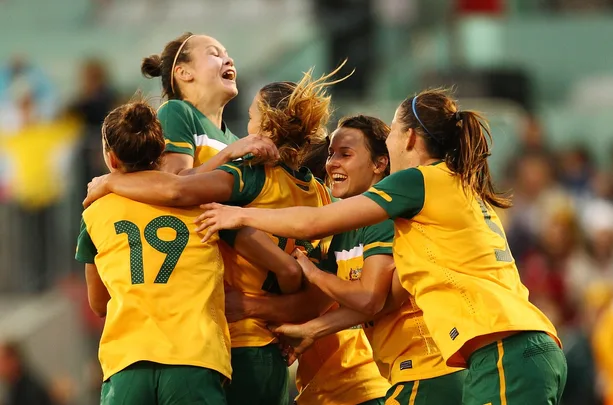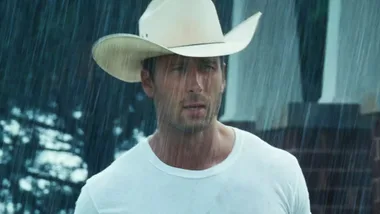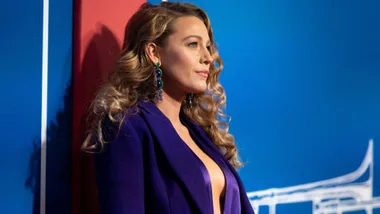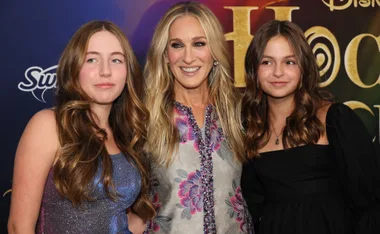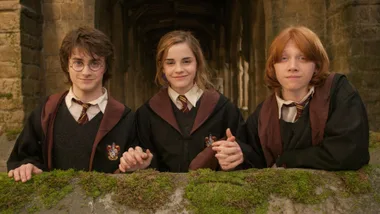Four decades ago, eleven women ran out onto a grassy pitch and shook up the arena of women’s football forever. Ahead of the FIFA Women’s World Cup in Australia, four generations of Matildas reflect upon the game-changing players who paved the way for female athletes and their hopes for the future.
Cortnee Vine (Current Matildas squad)
“Even if you’re not in the sporting world, there’s a good chance you’ve heard of the Matildas. It’s incredible to see how these women have transformed an average national team into the most loved sporting team in Australia. I’m so grateful that I get to experience what it’s like to be a professional athlete because of them.
The Matildas would not be where they are today without the groundwork laid by past players. They had a lot of strikes, a lot of meetings with Professional Footballers Australia and they really fought for what it is now. I’d like to be able to make an impact like that.
I want women to know that there’s a career in football for them. That’s still not happening in Australia right now. There’s only a few professional athletes who get paid as a full-time career. We’re still fighting for that equality, especially the professionalism and the facilities, the payments, everything like that. We’re still fighting and it’s not there yet.
Equality is more than just equal pay, it’s about respecting women as athletes. We’re not just kicking the ball around because it’s fun. A lot of girls get a bit of an identity mix up because they’re doing this thing that should be full-time.
When I was younger, women’s football didn’t get the media coverage that it does now, so I didn’t have any female players to look up to. Sam Kerr has done amazing things for the women’s game. Something I always refer back to is the strike to get paid enough to go to these tournaments because they weren’t getting it. They took a strike and they didn’t go [on tour] and that’s why we’re here now.”
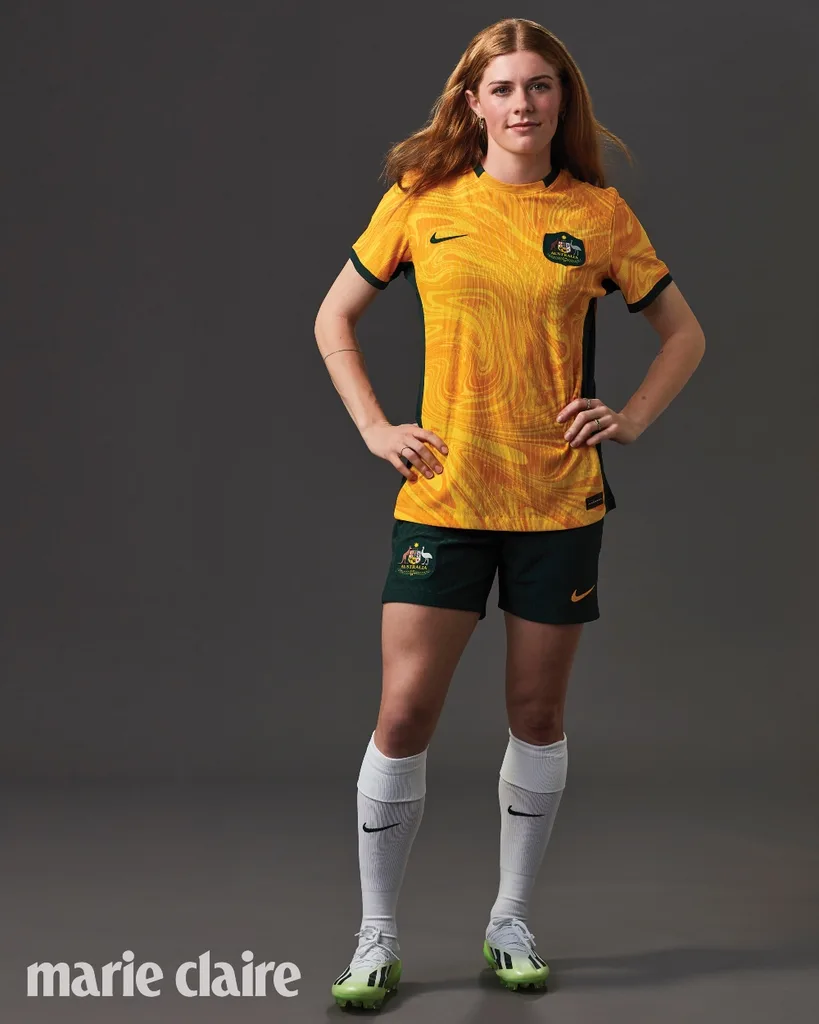
Leigh Wardell (Matilda 1978–1988)
“Growing up, there was no football for me. My dad tried to get me on the back of one of the local clubs and they told him the rules say ‘he’. Dad said, ‘Well, that’s not an issue, just add she in there.’ Apparently it wasn’t that simple. Mum and Dad would say to me, ‘I know it’s hard to understand; we don’t understand but we’ll just work around it.’ So there were gaps of time where I couldn’t play. Fortunately, Dad was a coach and part of our local association, so he had a bit of influence there to get me to play for a women’s team at our club.
In the early days of the Matildas it wasn’t really a career. There was no AFC [Asian Football Confederation], no World Cup, no Olympic Games. When I told people I played soccer, a lot of people would say, ‘I didn’t realise girls played soccer.’ I never understood that.
In the past 10 to 15 years, things changed dramatically. When the European clubs started to take us seriously that’s when things really ramped up. Now, all of the Matildas’ games at this year’s World Cup are sold out. It’s interesting when people ask what’s it like to see women’s football finally get its recognition. For me, it should have always been that way.
Despite catching up quickly to the men’s game, which has been around for 100-plus years, there’s still change to be seen. Globally, we still don’t have the same exposure in the media and salaries are still an issue. We’re not at a stage yet where football is a full-time profession for females in this country. My hope for the future is that women have the choice to be a footballer without having to try to balance all these other things.”
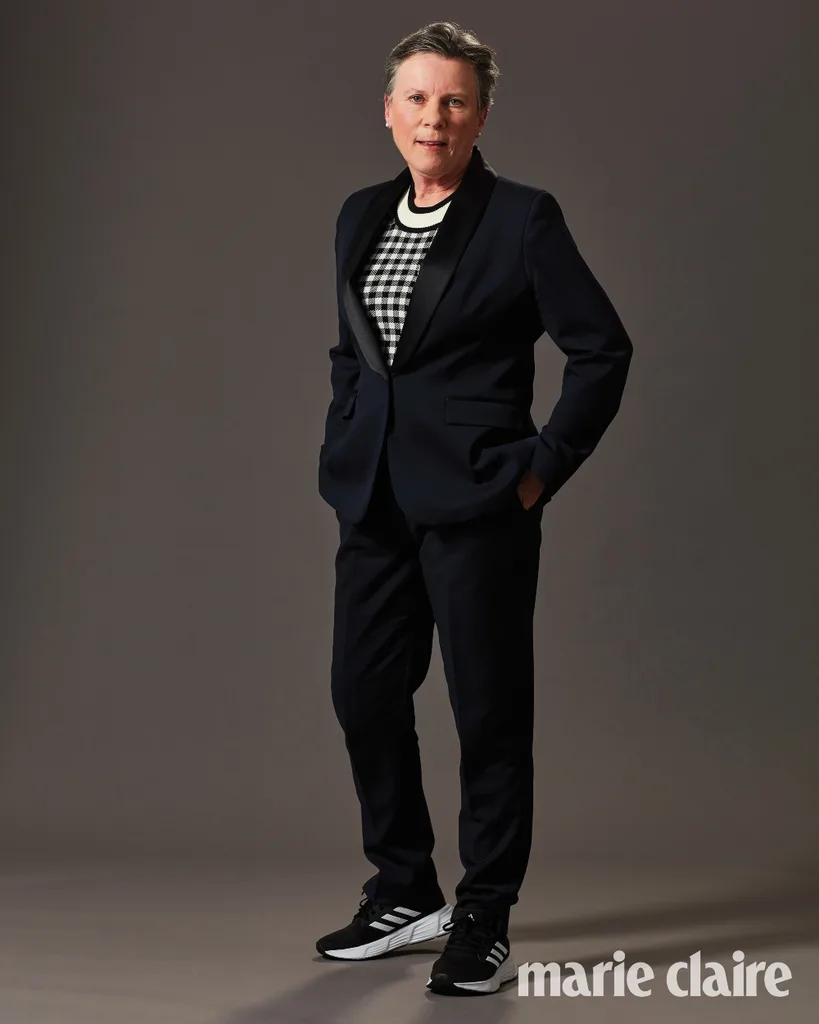
Rhian Davies (Matilda 2002–2008)
“When I was 15, I played my first season for the NSW Institute of Sport. It was here that I was first exposed to female athletes and my mind was blown. Many of them were parents or working second jobs; I had no idea that there was even a pathway to professional football for women.
When I was signed to the Matildas in 2002, there was a huge shift in the team. The players wanted to move on from the [nude] calendar that was done in 2000 and lean into becoming a more professional team. To get that, we knew it was going to take very small steps. So we started talking to the coaches and management about better financial support for the players. The money that we received at the time wasn’t even enough to cover the fuel to get to and from training, let alone injury management.
The World Cup in 2007 was a real turning point. It put the Matildas name out there and there was huge support back home. In 2008 I made the decision to retire because I needed to get a ‘real job.’ If I was playing with the conditions that the Matildas have today, I would not have needed to step down.
I have young twins now and I’m glad that women’s football is a visible career for them. It’s an amazing feeling to be a part of the Matildas’ history. I’m so excited to watch the World Cup and get my kids involved and show them the history I had been a part of.”
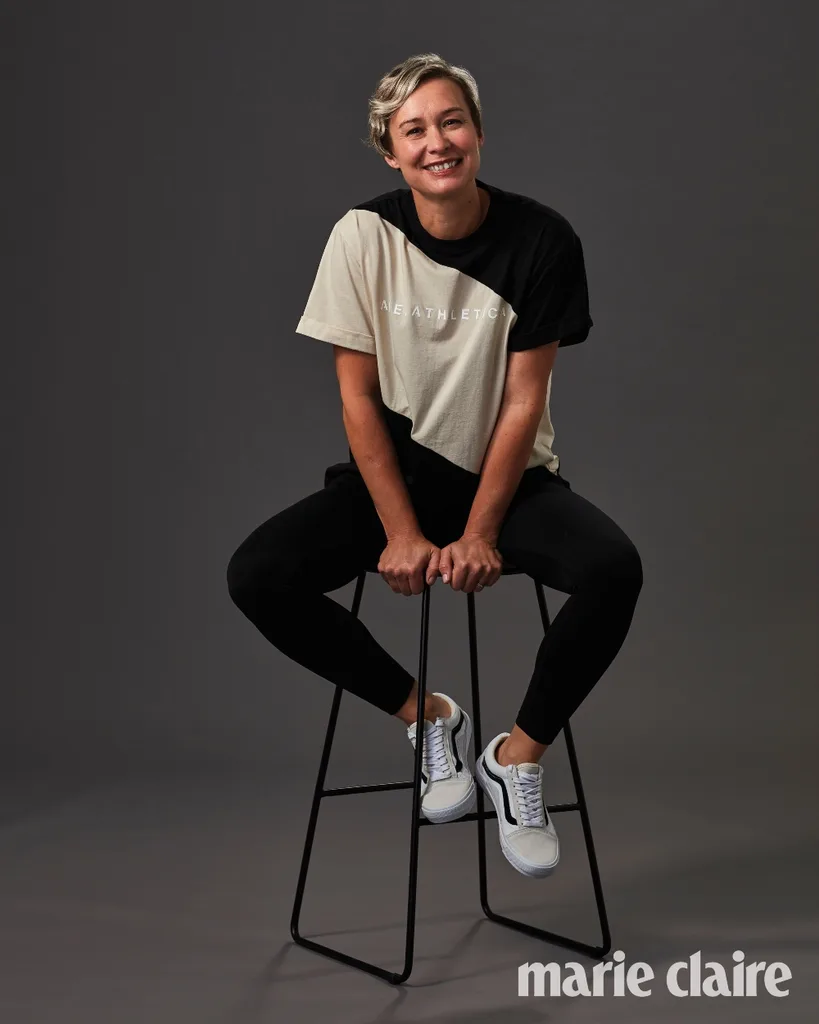
Naomi Chinnama (Young Matildas)
“My earliest memory of playing football is training with my brother for the Point Cook Soccer Club [in Melbourne]. It was an all-boys team, and my dad was the coach.
When I made my debut for the Young Matildas last year it was incredible. We played in New Zealand to a huge crowd, and we won. It was an amazing moment.
A lot has changed since the early days of the Matildas. A number of the Australian players back then had to have a job on top of playing, and in some instances players weren’t even paid to play. Leigh Wardell had to play for her rep team, club team and the state team all at once, which would just be impossible. Women’s football at a professional level has come a long way since then.
The salaries … have immensely changed. That said, there’s always room for improvement, especially with pay disparity between men and women. FIFA has taken steps to address this for the tournament. Hopefully, hosting the World Cup will promote women’s football on a bigger scale and refocus efforts on solving these problems.
I remember the moment the news was announced and watching everyone celebrate having the World Cup on home soil. It’s a huge deal to see women’s football getting the attention it deserves here in Australia. It’s an important time right now to be a female footballer. We have an opportunity to grow the sport and encourage more youth participation.
Sadly, there is still a close-minded perception out there that women’s games aren’t as good as men’s. I see it on social media, and I feel it’s a stigma that needs to be addressed. It’s two different games. We play a certain way and have our own complexities/challenges. I hope to see more attitudes change in future and the pay of the players rewarded accordingly. I’m not saying it will be easy to completely achieve it. But I do think we can get there.”
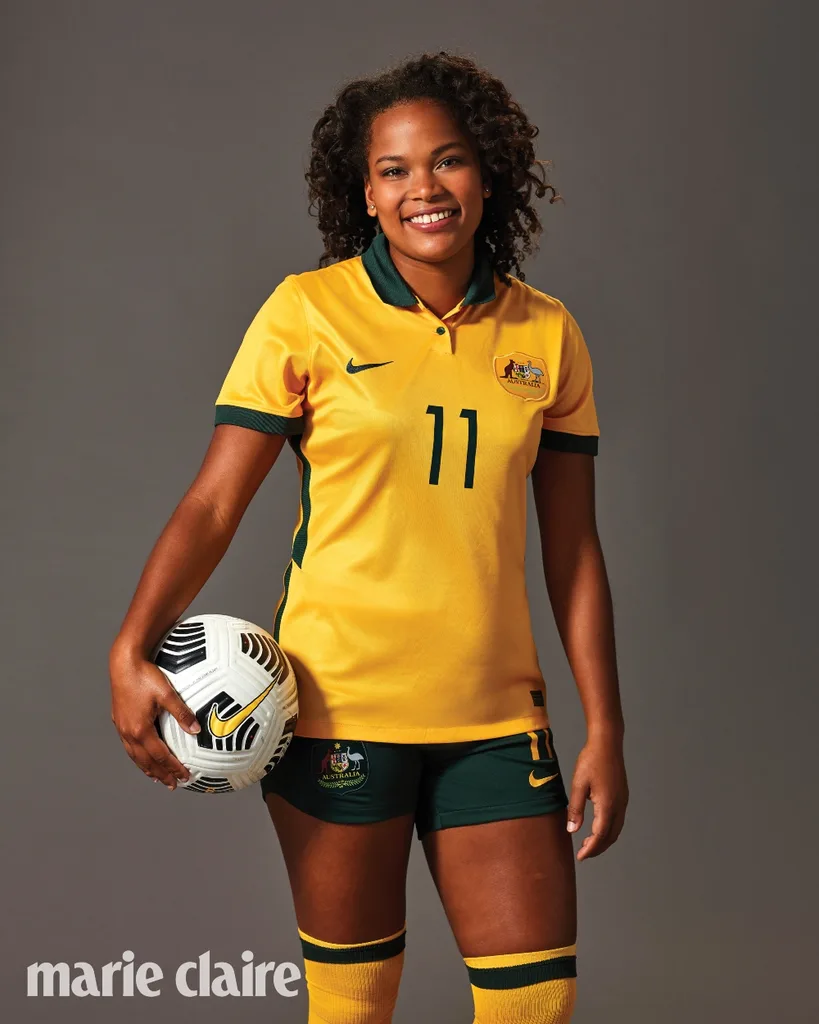
Everything you need to know about FIFA 2023
The FIFA Women’s World Cup 2023 runs from July 20 to August 20, with matches being played at 10 stadiums in nine cities across Australia and New Zealand. Thirty-two teams divided into eight groups will battle it out across 64 games. Australia are in the same group as Ireland, Nigeria and Canada. The United States are the world’s number-one ranked team and are favourites for this World Cup (they’ve taken home the trophy four times previously). The only other winners of the World Cup have been Japan, Germany and Norway.
Australia are ranked 10th but they are in great form and have a lot of depth – plus a not-so-secret weapon in star striker, captain and one of the world’s best footballers, Sam Kerr. The Matildas’ games are all sold out but there are still plenty of matches where you can see the world’s best female footballers. Tickets are available from FIFA. If you can’t get to a game, soak up the atmosphere by watching matches live on big screens at designated FIFA Fan Festival sites in all the major cities.
For more details, visit FIFA.
This article originally appeared in the August issue of marie claire Australia.
